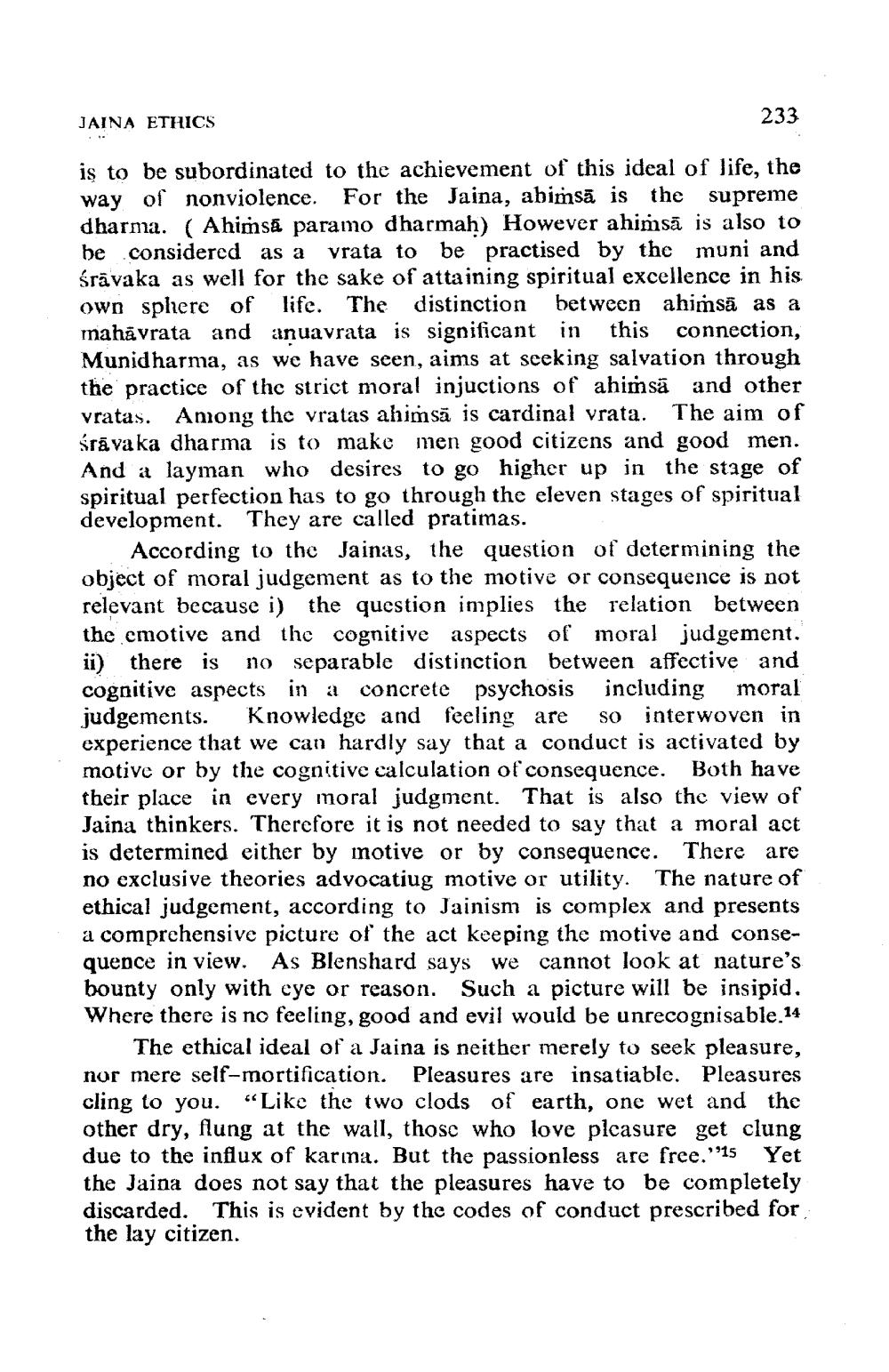________________
JAINA ETHICS
233
is to be subordinated to the achievement of this ideal of life, the way of nonviolence. For the Jaina, abimsā is the supreme dharma. ( Ahimsa paramo dharmah) However ahimsā is also to be considered as a vrata to be practised by the muni and śrävaka as well for the sake of attaining spiritual excellence in his own sphere of life. The distinction between ahimsä as a mahā vrata and anuavrata is significant in this connection, Munidharma, as we have seen, aims at sceking salvation through the practice of the strict moral injuctions of ahimsã and other vratas. Among the vratas ahimsā is cardinal vrata. The aim of śrāva ka dharma is to make men good citizens and good men. And a layman who desires to go higher up in the stage of spiritual perfection has to go through the eleven stages of spiritual development. They are called pratimas.
According to the Jainas, the question of determining the object of moral judgement as to the motive or consequence is not relevant because i) the question implies the relation between the cmotive and the cognitive aspects of moral judgement. ii) there is no separable distinction between affective and cognitive aspects in a concrete psychosis including mora judgements. Knowledge and feeling are so interwoven in experience that we can hardly say that a conduct is activated by motive or by the cognitive calculation of consequence. Both have their place in every moral judgment. That is also the view of Jaina thinkers. Therefore it is not needed to say that a moral act is determined either by inotive or by consequence. There are no exclusive theories advocatiug motive or utility. The nature of ethical judgement, according to Jainism is complex and presents a comprehensive picture of the act keeping the motive and consequence in view. As Blenshard says we cannot look at nature's bounty only with eye or reason. Such a picture will be insipid. Where there is no feeling, good and evil would be unrecognisable.14
The ethical ideal of a Jaina is neither merely to seek pleasure, nor mere self-mortification. Pleasures are insatiable. Pleasures cling to you. “Like the two clods of earth, one wet and the other dry, flung at the wall, those who love pleasure get clung due to the influx of karına. But the passionless are free."15 Yet the Jaina does not say that the pleasures have to be completely discarded. This is evident by the codes of conduct prescribed for the lay citizen.




